Birch firewood is a popular choice for heating homes and cooking due to its many advantages. However, there are also some disadvantages that should be taken into consideration before using it. In this article, we will explore the advantages and disadvantages of birch firewood.
Blog categories
Search in blog
-
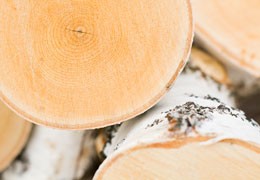 Birch Firewood Advantages and DisadvantagesRead more
Birch Firewood Advantages and DisadvantagesRead more -
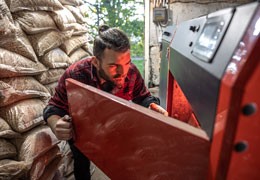 Advantages of wood pelletsFebruary 20th 2023Posted in: Wood Pellets893 views 4 LikedRead more
Advantages of wood pelletsFebruary 20th 2023Posted in: Wood Pellets893 views 4 LikedRead moreWood pellets are a type of biomass fuel that is gaining popularity as a sustainable and efficient source of energy. Made from compressed sawdust and other wood waste materials, wood pellets offer several benefits over traditional fossil fuels like oil, coal, and gas. In this blog article, we will discuss the advantages of wood pellets and their potential as a source of renewable energy.
-
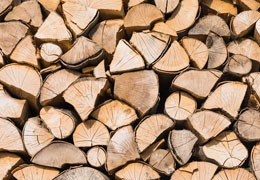 Comparison of Oak, Hornbeam, and Birch FirewoodFebruary 4th 2023Posted in: Firewood2103 views 32 LikedRead more
Comparison of Oak, Hornbeam, and Birch FirewoodFebruary 4th 2023Posted in: Firewood2103 views 32 LikedRead moreIf you’re in the market for firewood and trying to decide between oak, hornbeam, and birch, this article is for you.
-
 Birch Kiln-Dried FirewoodJanuary 11th 2023Posted in: Firewood1090 views 0 LikedRead more
Birch Kiln-Dried FirewoodJanuary 11th 2023Posted in: Firewood1090 views 0 LikedRead moreAre you in the market for high-quality, premium birch kiln-dried firewood in Germany? Then you've come to the right place. Having the best firewood is cost-effective, as it can help you reduce your home's electrical bill by heating your home.
-
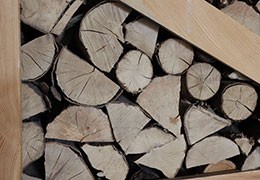 Advantages of Kiln-Dried FirewoodNovember 22nd 2022Posted in: Firewood1322 views 1 LikedRead more
Advantages of Kiln-Dried FirewoodNovember 22nd 2022Posted in: Firewood1322 views 1 LikedRead moreAre you looking for the perfect choice of firewood sure to give you the best burn? If so, then kiln-dried firewood is the way to go. Kiln-dried firewood is a type of firewood that has been dried in a kiln, which is a type of oven.
-
 Comparison of Oak, Hornbeam, and Birch FirewoodFebruary 4th 2023Posted in: Firewood2103 views 32 LikedIf you’re in the market for firewood and trying to decide between oak, hornbeam, and birch, this article is for you.Read more
Comparison of Oak, Hornbeam, and Birch FirewoodFebruary 4th 2023Posted in: Firewood2103 views 32 LikedIf you’re in the market for firewood and trying to decide between oak, hornbeam, and birch, this article is for you.Read more -
 Advantages of Kiln-Dried FirewoodNovember 22nd 2022Posted in: Firewood1322 views 1 LikedAre you looking for the perfect choice of firewood sure to give you the best burn? If so, then kiln-dried firewood is the way to go. Kiln-dried firewood is a type of firewood that has been dried in a kiln, which is a type of oven.Read more
Advantages of Kiln-Dried FirewoodNovember 22nd 2022Posted in: Firewood1322 views 1 LikedAre you looking for the perfect choice of firewood sure to give you the best burn? If so, then kiln-dried firewood is the way to go. Kiln-dried firewood is a type of firewood that has been dried in a kiln, which is a type of oven.Read more -
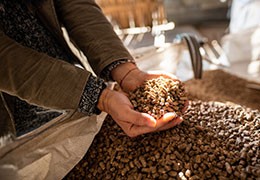 ENplus A1 Wood Pellets – General Information to KnowOctober 8th 2022Posted in: Wood Pellets1114 views 3 LikedAre you a newcomer to the industry of wood pellets? What is ENplus certification? To put it simply, ENplus A1 is a quality certification for wood pellets that are granted by various of institutions. It is to guarantee the credibility of businesses that deal in the production of wood pellets. Let's go over in greater depth what the ENplus certification entailsRead more
ENplus A1 Wood Pellets – General Information to KnowOctober 8th 2022Posted in: Wood Pellets1114 views 3 LikedAre you a newcomer to the industry of wood pellets? What is ENplus certification? To put it simply, ENplus A1 is a quality certification for wood pellets that are granted by various of institutions. It is to guarantee the credibility of businesses that deal in the production of wood pellets. Let's go over in greater depth what the ENplus certification entailsRead more -
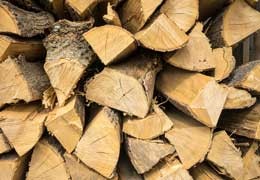 A guide to kiln-dried firewood to burn in a fireplaceOctober 14th 2022Posted in: Firewood1108 views 0 LikedSelecting the best firewood for your fireplace may sometimes be difficult. This is because you will need firewood that is dry, easy to burn, and releases less smoke. With various types of wood in the market, identifying the perfect one can be an issue and that's why you will need to have some knowledge of common types of firewood available.Read more
A guide to kiln-dried firewood to burn in a fireplaceOctober 14th 2022Posted in: Firewood1108 views 0 LikedSelecting the best firewood for your fireplace may sometimes be difficult. This is because you will need firewood that is dry, easy to burn, and releases less smoke. With various types of wood in the market, identifying the perfect one can be an issue and that's why you will need to have some knowledge of common types of firewood available.Read more -
 Birch Kiln-Dried FirewoodJanuary 11th 2023Posted in: Firewood1090 views 0 LikedAre you in the market for high-quality, premium birch kiln-dried firewood in Germany? Then you've come to the right place. Having the best firewood is cost-effective, as it can help you reduce your home's electrical bill by heating your home.Read more
Birch Kiln-Dried FirewoodJanuary 11th 2023Posted in: Firewood1090 views 0 LikedAre you in the market for high-quality, premium birch kiln-dried firewood in Germany? Then you've come to the right place. Having the best firewood is cost-effective, as it can help you reduce your home's electrical bill by heating your home.Read more
-
 Birch Firewood Advantages and DisadvantagesApril 16th 2023Posted in: Firewood938 views 23 LikedBirch firewood is a popular choice for heating homes and cooking due to its many advantages. However, there are also some disadvantages that should be taken into consideration before using it. In this article, we will explore the advantages and disadvantages of birch firewood.Read more
Birch Firewood Advantages and DisadvantagesApril 16th 2023Posted in: Firewood938 views 23 LikedBirch firewood is a popular choice for heating homes and cooking due to its many advantages. However, there are also some disadvantages that should be taken into consideration before using it. In this article, we will explore the advantages and disadvantages of birch firewood.Read more -
 Advantages of wood pelletsFebruary 20th 2023Posted in: Wood Pellets893 views 4 LikedWood pellets are a type of biomass fuel that is gaining popularity as a sustainable and efficient source of energy. Made from compressed sawdust and other wood waste materials, wood pellets offer several benefits over traditional fossil fuels like oil, coal, and gas. In this blog article, we will discuss the advantages of wood pellets and their potential as a source of renewable energy.Read more
Advantages of wood pelletsFebruary 20th 2023Posted in: Wood Pellets893 views 4 LikedWood pellets are a type of biomass fuel that is gaining popularity as a sustainable and efficient source of energy. Made from compressed sawdust and other wood waste materials, wood pellets offer several benefits over traditional fossil fuels like oil, coal, and gas. In this blog article, we will discuss the advantages of wood pellets and their potential as a source of renewable energy.Read more -
 Comparison of Oak, Hornbeam, and Birch FirewoodFebruary 4th 2023Posted in: Firewood2103 views 32 LikedIf you’re in the market for firewood and trying to decide between oak, hornbeam, and birch, this article is for you.Read more
Comparison of Oak, Hornbeam, and Birch FirewoodFebruary 4th 2023Posted in: Firewood2103 views 32 LikedIf you’re in the market for firewood and trying to decide between oak, hornbeam, and birch, this article is for you.Read more -
 Birch Kiln-Dried FirewoodJanuary 11th 2023Posted in: Firewood1090 views 0 LikedAre you in the market for high-quality, premium birch kiln-dried firewood in Germany? Then you've come to the right place. Having the best firewood is cost-effective, as it can help you reduce your home's electrical bill by heating your home.Read more
Birch Kiln-Dried FirewoodJanuary 11th 2023Posted in: Firewood1090 views 0 LikedAre you in the market for high-quality, premium birch kiln-dried firewood in Germany? Then you've come to the right place. Having the best firewood is cost-effective, as it can help you reduce your home's electrical bill by heating your home.Read more -
 Advantages of Kiln-Dried FirewoodNovember 22nd 2022Posted in: Firewood1322 views 1 LikedAre you looking for the perfect choice of firewood sure to give you the best burn? If so, then kiln-dried firewood is the way to go. Kiln-dried firewood is a type of firewood that has been dried in a kiln, which is a type of oven.Read more
Advantages of Kiln-Dried FirewoodNovember 22nd 2022Posted in: Firewood1322 views 1 LikedAre you looking for the perfect choice of firewood sure to give you the best burn? If so, then kiln-dried firewood is the way to go. Kiln-dried firewood is a type of firewood that has been dried in a kiln, which is a type of oven.Read more


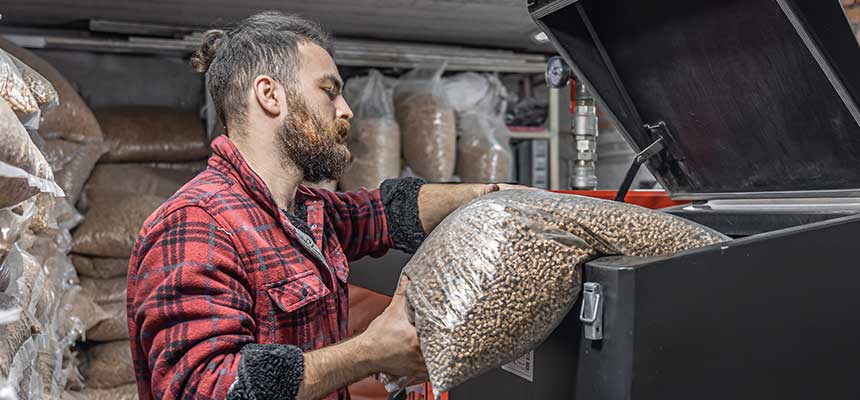

Leave a comment